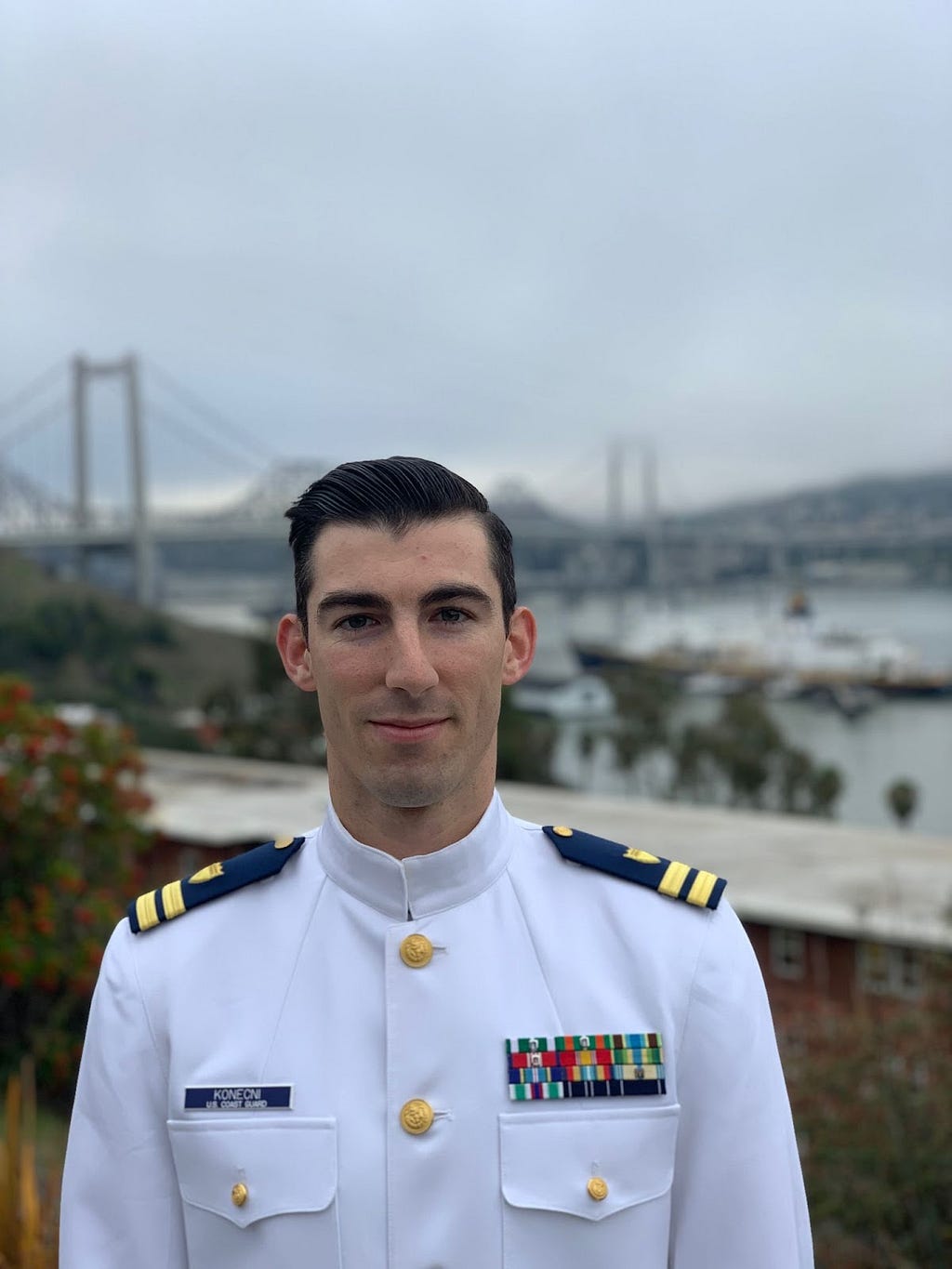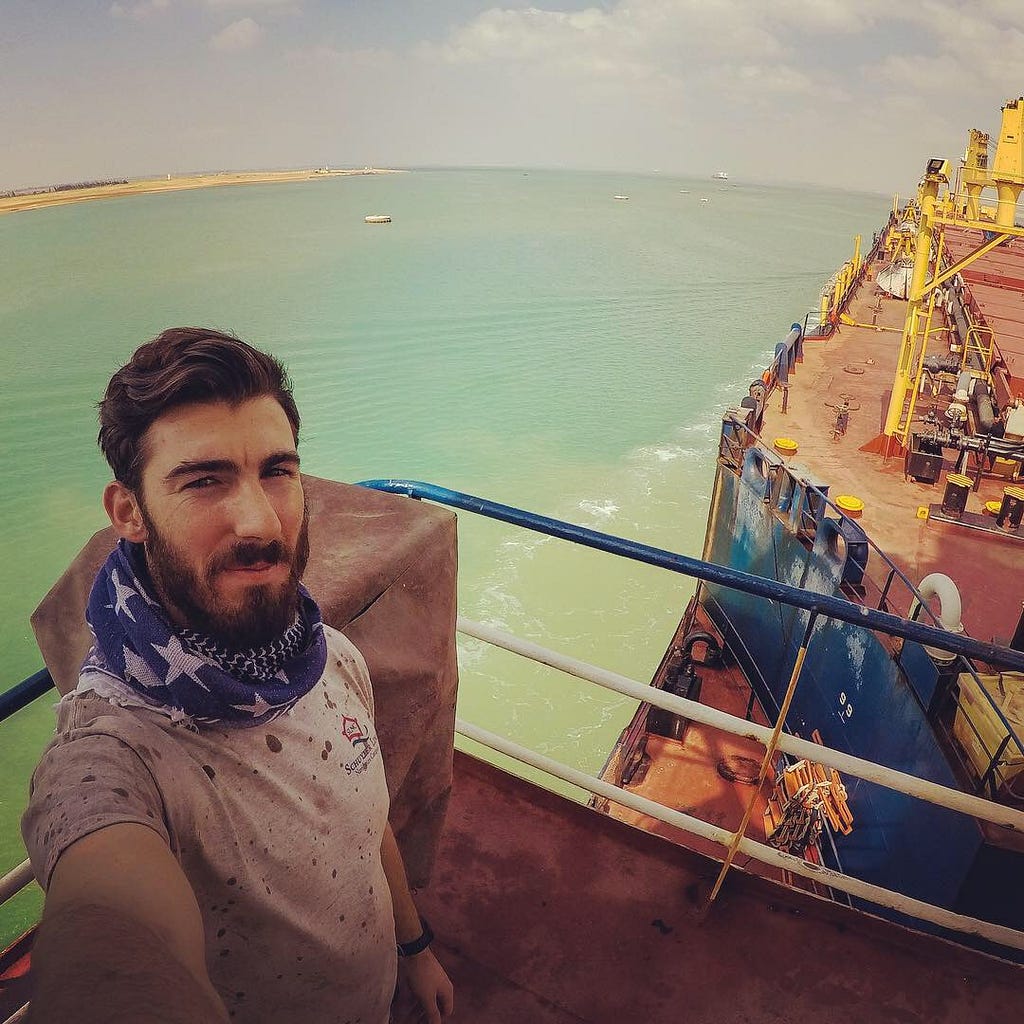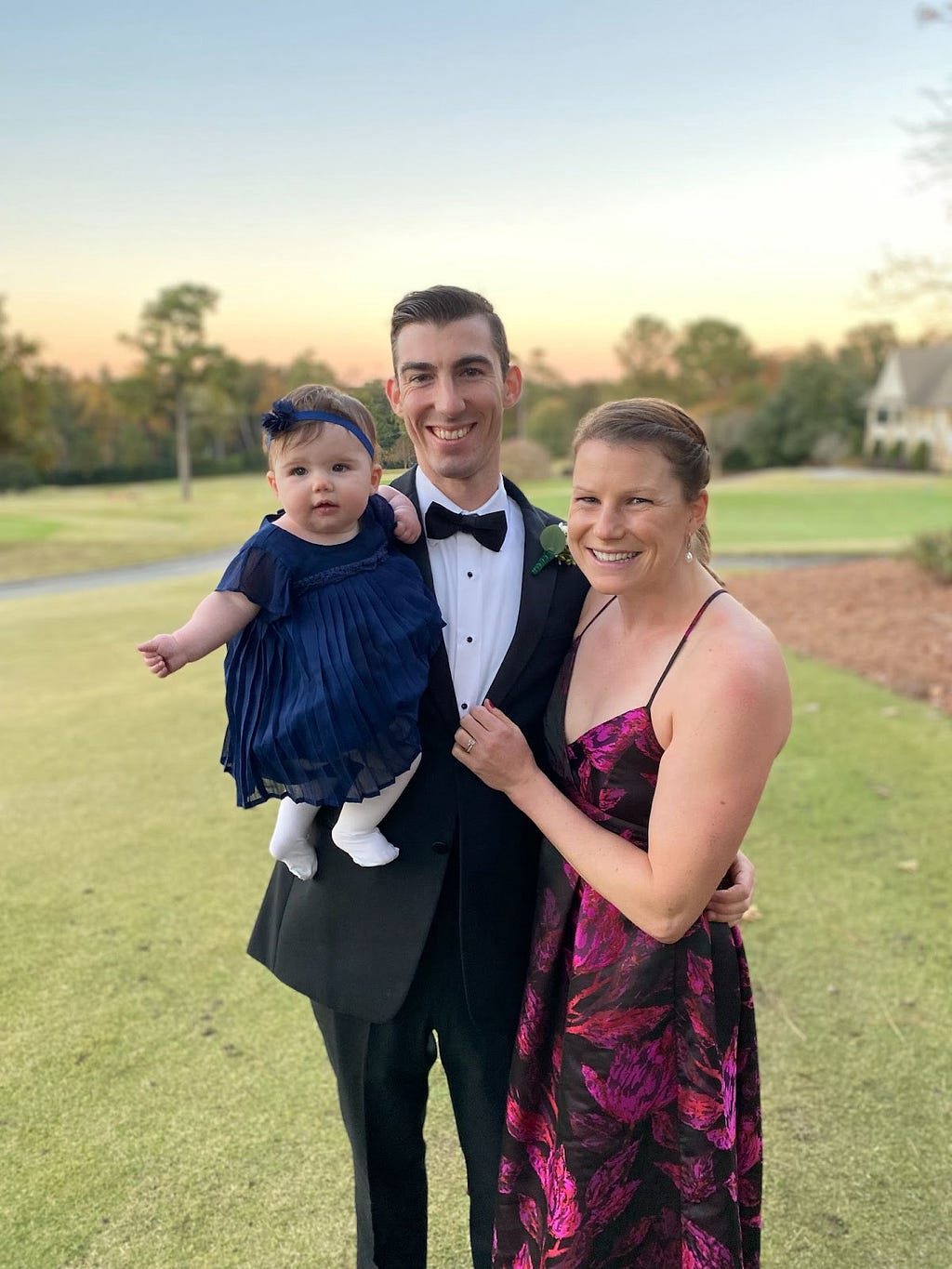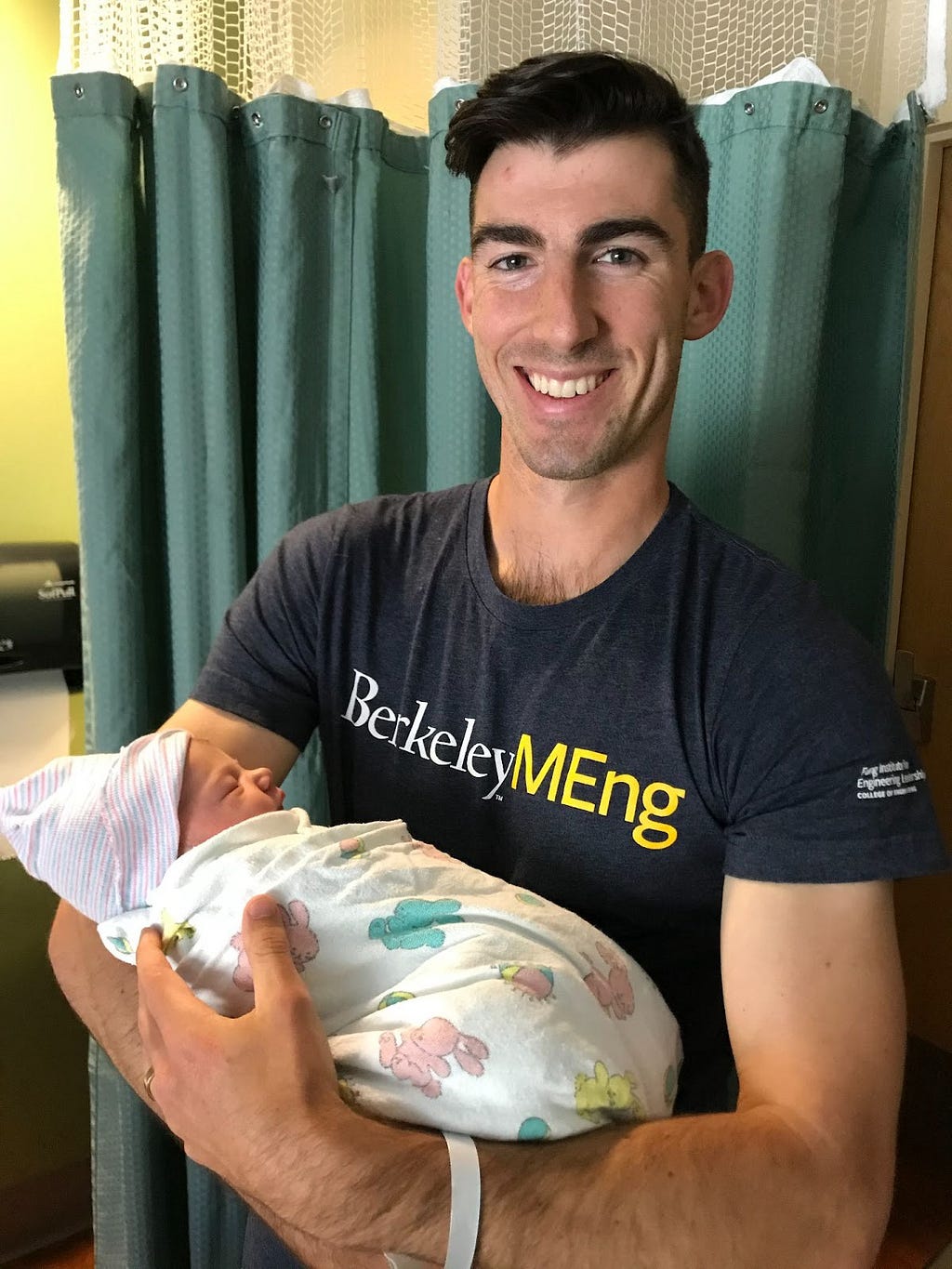On his experience as a full-time US Coast Guard Reservist, part-time student, and passion on nuclear power.

Tell us about yourself and your journey into the MEng program. What inspired you to apply? What set you on this path?
I am currently a part-time MEng student in the Nuclear Engineering department with a concentration in Clean Energy (Microgrids/Microreactors). This is my second year of the program with my expected graduation with the class of 2022. I am a full-time employee at California State University Maritime Academy, Licensed Merchant Mariner, USCG Coast Guard Reservist, husband, and father.“I would like to be part of the team and community that helps get nuclear power to the forefront of our energy production.”I graduated in 2015 with my undergraduate in Marine Systems Engineering and was commissioned into the United States Coast Guard which brought me to California. For my initial position, I worked as a project manager, managing Coast Guard Cutter dry-dock projects. After a year I transferred to be an engineer aboard Coast Guard Cutter BERTHOLF, also stationed here in California. Once I completed my active duty commitment I went off to sail in the Merchant Marine as a Second Assistant Engineer. Within a month and a half of leaving active duty, I was working aboard a merchant vessel bringing American-grown grain to Yemen as part of the United States Agency for International Development (USAID) humanitarian aid mission. After sailing halfway around the world we delivered 29,000 metric tons of grain and continued our Westward transit. In addition to this mission, I was able to work on various steamship lay-ups and breakouts in the Port of Oakland as various companies prepared to scrap their steamships. After a little over a year, I started my current full-time position at Cal Maritime. As the Engine Company Commandant, I work in leadership development, coaching, and mentor over 300 engineering cadets. I took this job to give back to the maritime community that has allowed me to do so much. In addition to working full-time, I am an active Coast Guard Reservist. I am currently stationed with USCG Port Security Unit 312 as the Engineering Department Head. In this capacity, I lead a 15-person department to ensure the unit’s boats, guns, and machinery are fully capable and ready for all mission sets. While applying to graduate school, UC Berkeley’s MEng program really stood out to me. The combination of technical courses with leadership spoke to my background. While my undergraduate degree was not in nuclear engineering, I had been interested in the field and wanted to learn more. I started the MEng program last year during the height of COVID-19 and completed my required technical courses through the year. This year I am working through the leadership curriculum and capstone components of the program.

“I hope to use this degree in combination with my work experience to help the energy sector increase the use of clean, safe, and reliable nuclear power.”
Did you pursue a different path from your undergraduate studies?
Marine Systems Engineering dives into the design, maintenance, theory, and repair of all shipboard systems. While this major is applicable to power generation and the respective auxiliary systems, it is very different from nuclear engineering. Last year I faced a steep learning curve as I dove into neutronics, fusion, and nuclear policy. Despite this challenge, my MEng classmates and the outstanding professors from the Nuclear Engineering department helped me on my way to understanding these topics. When applying for this program I was looking for a program that would interest and challenge me. Nuclear engineering has done just that!What made you want to pursue a master’s in Nuclear Engineering and what do you hope to do with the degree?
Energy is a big deal. It is an industry that gets attention but not a lot of attention, similar to the maritime industry. As a marine engineer working aboard ships, you maintain and manage what is essentially a floating power plant. I wanted to leverage this hands-on experience and expand my knowledge in energy production, specifically in the nuclear field. As the United States addresses future infrastructure improvements, and many third-world countries start building energy infrastructure it’s an exciting time to be involved in the energy sector. I hope to use this degree in combination with my work experience to help the energy sector increase the use of clean, safe, and reliable nuclear power.What have you taken away so far from the MEng program?
Working with classmates from different technical, personal, and geographic backgrounds has added depth to my experience. Despite the challenges of COVID-19 last year, the program and my peers made it a priority to connect virtual and in-person as the year went on. This year the leadership curriculum has allowed me to interact with even more of my classmates and has made for many thought-provoking discussions during and after class. My main focus and project this year has been the capstone experience. As much as I would like to be more active in the community, being a part-time MEng student means juggling family, work, and class. I am currently working on an industry Capstone Project, Greenway 2.0. Coleman Fung is actually our advisor for this project in collaboration with New Alchemy. Our project is a big one and it is the first year of many for the Greenway Project. The big picture is we are looking to build a sustainable community. The subgroup I am in focuses on designing a novel microgrid. Tackling the challenge of creating and supplying power with a Resilient, reliable, and robust grid is not easy. As we have all seen in Berkeley over the last few years the massive statewide grid system we currently use has many drawbacks. With changing weather patterns, ocean levels rising, and fossil fuel prices rising, the time is right to reevaluate not only how we produce energy, but how we get that energy to the consumer. One of the largest drawbacks for traditional renewables such as solar is that it has limitations. If you have a blizzard, it’s nighttime, or just use more energy than a few panels can produce, you don’t have the power to meet your needs. Our group is building out the concept of an energy triad that combines renewables (solar, wind, tidal), with nuclear, and a degree of storage. With this optimal mix, nuclear power can provide a stable base level of power and the renewables and storage can meet surge demands across a community. The renewable sources can also be scaled up or down and changed depending on the location of a community. One thing that really drew me into this project is that it is a multi-disciplinary project so we have people in nuclear and mechanical engineering. It is cool to see people from different tracks bringing in that diversity of thought and experience that makes a really good pool for the project.
Any advice for those interested in the MEng program?
Choose a major you’re interested in and get out of your comfort zone. Whether it’s the challenging electives or giving a 4-minute speech in ENG 295, this program will get you out of your comfort zone. Embrace that feeling of being uncomfortable and lean on your classmates for support.“Working with classmates from different technical, personal, and geographic backgrounds has added depth to my experience.”
What kind of impact do you want to have on the world?
At a higher level, I would like to be part of the team and community that helps get nuclear power to the forefront of our energy production. As a Coast Guard Officer, I want to be trained and ready to answer the call should this country or the international community need me or my team. Finally, I think people have a large amount of control over their immediate community. I plan on giving back to my community, be it my daughter’s school, fellow engineers following a similar career path, or just being a good neighbor.What are some of your non-academic hobbies/passions, and how, if at all, have they inspired your professional goals?
I enjoy fitness, specifically running. I started in high school and ran undergrad cross country and track. My running journey has been a really meditative experience. Not only does it help me stay physically fit, but I think the years of running have helped me develop really powerful self-talk. I think honing this skill through challenging races or even just after a long day at work has built up my resiliency. This resiliency carries over into the professional and personal side of my life and has allowed me to make the best of challenging situations.Fun fact or a favorite quote (or both):
“By enduring, we conquer.” Definitely rings true in my experience but I think it goes for a lot of things in life. Sometimes life is hard but the human spirit is resilient, if people want something they can buckle down, get through, and get it done.
Anthony J. Konecni, MEng ’22 (NE): “Energy is a big deal.” was originally published in Berkeley Master of Engineering on Medium, where people are continuing the conversation by highlighting and responding to this story.




